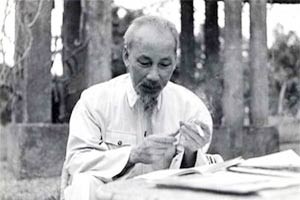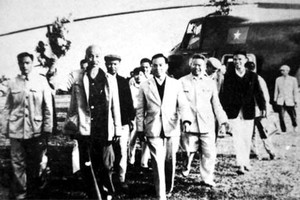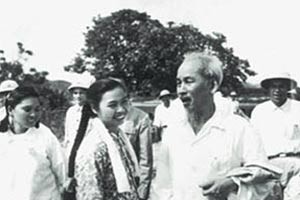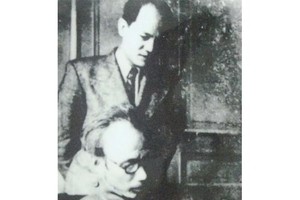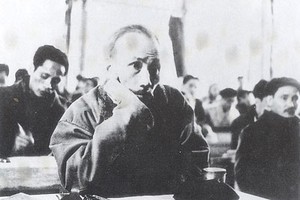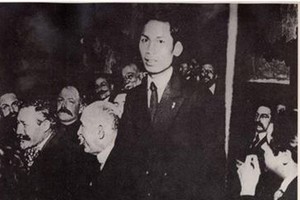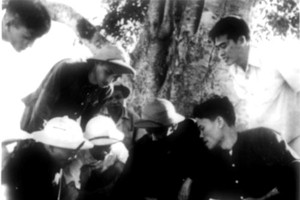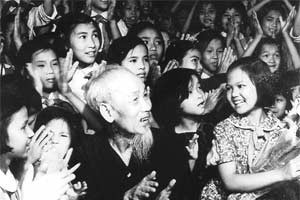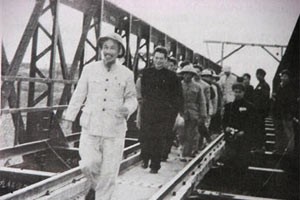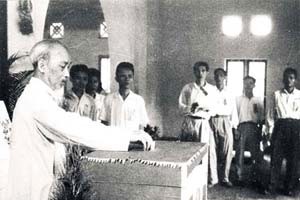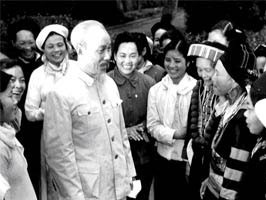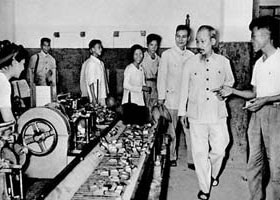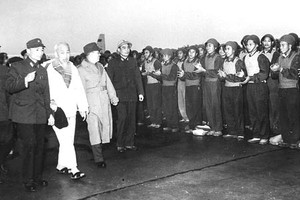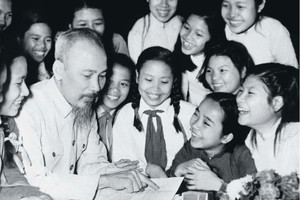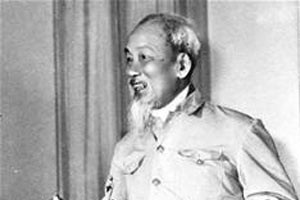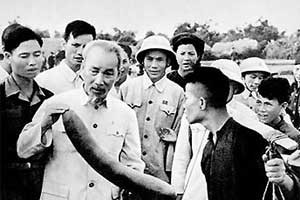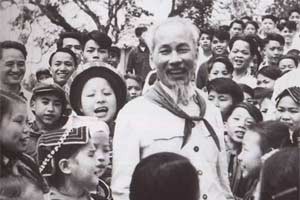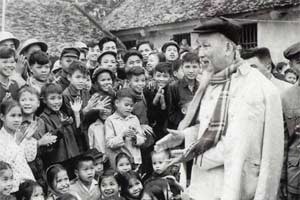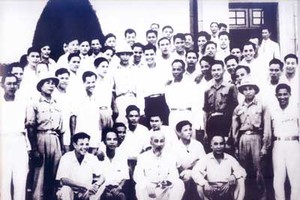1919
Nguyen Ai Quoc (an alias of Ho Chi Minh) made a trip to the Sainte Geneviève Library and the office of the Human Rights Alliance in Paris.
He also met several Vietnamese living there.
French spies continued keeping tabs on his political activities in France.
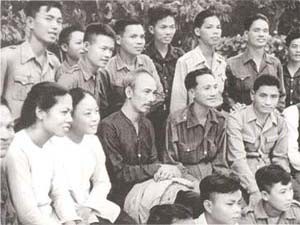
1921
Nguyen Ai Quoc attended a meeting held by the International Trade Union Committee in District 17, Paris.
1926
In “Trung Trac” he wrote under the pseudonym H. T. in Thanh Nien (Young People) newspaper published in Guangzhou, China, Nguyen Ai Quoc highlighted the career of the Vietnamese national heroine.
The article read: “How brave she was! She was a woman who sacrificed herself for the country’s independence. The uprising led by her lasted only around three years but it made the enemy terror-stricken. She was an example to show that women in that time were well imbued with the revolutionary spirit …
“Today, the phrase “women’s rights” has been popularized all over the world. Vietnamese women are living in a country that has been put under the rule of French colonialists. It is very unlikely that our women will sit still, isn’t it? Dear women! Get together and fight the enemy soon!”
1945
President Ho Chi Minh attended a meeting of the National Assembly deputies in Hanoi to discuss an action plan of the Vietnam National People’s Union. The plan included tasks that served the resistance war, national independence, and economic development.
1946
In an interview with Cuu Quoc (National Salvation) magazine, the President said he agreed with the leader of the Socialist Party of France, Léon Blum, about his saying: “Sincere cooperation on the basis of independence is a manifestation of friendship and mutual trust.”
The President said: “Vietnam is willing to honestly cooperate with the French people on the basis of independence and equality. We respect France’s material and cultural interests in Vietnam, but we are determined not to yield to any foreign imposition, no matter if it is made by force or in other ways.”
1947
In a letter to the Cambodian Liberation Government, the President welcomed the establishment of the Vietnam-Cambodia-Laos Liberation Committee, whose purpose was to unite the three peoples in their common struggle for independence.
The letter read: “I truly believe that our peoples, with our strong determination in the struggle and with our close cooperation, will make our struggle a success and we will achieve independence for each of our countries.”
1953
In a letter to people and soldiers in the northern province of Lai Chau, a strategic area in the fight against French colonialists, the President advised them “to show solidarity and give support to each other; kill bandits and eliminate traitors; step up production to bring a well-off life to the people; and be loyal to the Fatherland and the Government of the Democratic Republic of Vietnam.”
He also said the Government would give clemency to those who give up their misguided ways to follow the nation’s just struggle for independence.
December 1953
The President sent a letter of encouragement to officers and soldiers at the Dien Bien Phu front.
The letter read: “After taking part in political and military re-education courses, you have made a lot of progress. You should continue to fight bravely, overcome all hardships, and keep your determination unchanged in all circumstances. You should be determined in killing the enemy, executing the Government’s policies, and gaining more victories.”
By Duong Trung Quoc* and his assistants
*The author is a historian and member of the National Assembly
